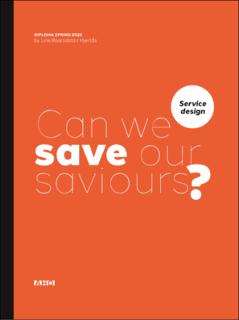| dc.contributor.advisor | Vink, Josina | |
| dc.contributor.author | Hjertås, Line Roarsdottir | |
| dc.coverage.spatial | Tanzania, Africa & Norway, Europe | en_US |
| dc.date.accessioned | 2022-08-04T13:24:00Z | |
| dc.date.available | 2022-08-04T13:24:00Z | |
| dc.date.issued | 2022-06 | |
| dc.identifier.uri | https://hdl.handle.net/11250/3010187 | |
| dc.description | This thesis takes a closer look at volunteer trips, particularly those where a European travels to an African country.
Many travel on the premiss that they are going to save someone, with different levels of the white saviour complex. This mentality is dangerous because it takes the power away from communities to resolve the situation in a way they deem appropriate. Can we save these saviours from making more situations that need saving?
I have gathered information about this topic through in-depth interviews, contextual interviews and observational studies in Norway and Tanzania. These methods thought me that critical self reflection could be one key to unlocking an understanding in a way that leaves room for more integrity and better directed help.
Inspired by card games and service design tools I would like to present you with “3 scenarios”. A self reflective card game designed to help better prepare volunteers travelling abroad. Shuffle the deck of cards, pick out three possible scenarios for your up coming trip and use the guidebook for questions related to your cards.
Each card focuses on one topic and bright colours reflect the lighthearted manner of this approach. Although lighthearted it has the potential to greatly impact the volunteers journey. Having the right expectations will make the trip feel safer and increase the ability to contribute to the workspace.
These cards are a direct result of the interviews and observational studies I conducted and are meant to be used by volunteers for volunteers. The goal is not to point a finger or demand the correct answer. The cards are there to help the volunteer gain a better understanding of a possible scenario.
As an interactive tool, the card game could foster more reflection then being asked questions on the spot. Their visual manner encourages a more playful experience which might lessen the fear of having to give a “correct” answer and open up for deeper reflection.
So for the big question: Can we save our saviours? Short answer, no. But we can assist them in saving themselves. Setting the right expecations creates a mindful awareness of the situation at hand. So although the 3 scenarios game will not burn down the white saviour complex it could be the spark that starts the fire. | en_US |
| dc.language.iso | eng | en_US |
| dc.publisher | The Oslo School of Architecture and Design | en_US |
| dc.subject | Service design | en_US |
| dc.subject | Tjenestedesign | en_US |
| dc.subject | Bistandsarbeid | en_US |
| dc.subject | White savior complex | en_US |
| dc.subject | Volunteers | en_US |
| dc.subject | Self reflection | en_US |
| dc.title | Can we save our saviours? | en_US |
| dc.type | Master thesis | en_US |
| dc.description.version | submittedVersion | en_US |
| dc.rights.holder | Line Roarsdottir Hjertås | en_US |
